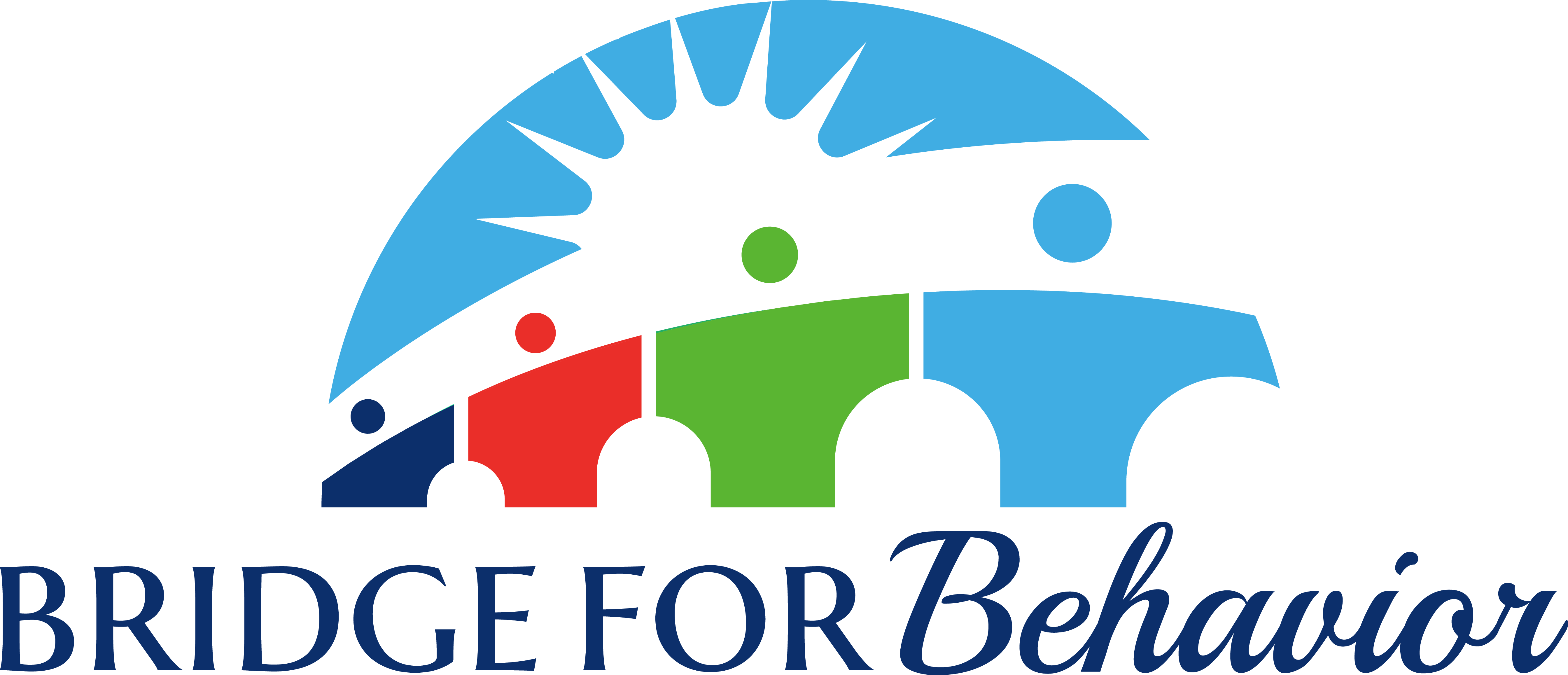Frequently Asked Questions
How is the Bridge for Behavior approach different from traditional Applied Behavior Analysis?
Our unique approach to Behavior Analysis requires working closely with families to empower parents in their own lives, and in the success of their child. Unlike traditional ABA you receive instruction from your home and are directly involved in all aspects of your family’s treatment. You Collaborate with a Behavior Analyst to choose valued goals and work together to implement appropriate interventions.
Who are the Family Treatment Guides?
Any Family treatment Guides collaborating with your family will be a Board-certified Behavior Analyst (BCBA) and a Licensed Behavior Analysts (LBA) specializing in parent and family outreach, as well as, early autism early intervention. Kyle Machos serves as our head Family Treatment Guide and oversees all BCBAs on our team
What kind of commitment is involved with the Bridge for Behavior Approach?
Working with a Family Treatment Guide at Bridge for Behavior is a commitment from the whole family. Unlike ABA clinics, where interventions are managed by behavior technicians, we partner with parents to give you the tools to work and play with your child to address behavioral deficits. Parents meet with a Treatment Guide from 1-3 hours a week While addressing behavioral concerns. Most of our clients will meet weekly for 12 to 16 weeks then Bi-weekly or monthly depending on goals, concerns and transitions.
How do I know this will help my child’s behavior?
There is no guarantee that the concerns with your child’s behavior will be completely alleviated, but Applied Behavior Analysis is considered an evidence-based best practice treatment by the US Surgeon General and by the American Psychological Association. Our Treatment Guides, in collaboration with you, continually assess the changes in desired and undesired behavior so we can work together to design practical interventions that result in positive behavior change.
Does Bridge for behavior work with other providers?
Yes, Collaboration of your child’s care is an important part of a successful treatment package. Having consistency across all people and environments is vital to a successful partnership.
What type of Families do we work with?
We partner with parents of early learners following a new autism diagnosis. We typically work with families of young children ages 1 to 4 years of age. We walk with our families to address their child’s behavioral and social deficits, while addressing concerns for best placement, advocacy, and transitions.
Does my child need to be present during sessions?
No, it is not necessary for your child to be present as our treatment guidance sessions are geared towards collaborating with parents. In some instances, it could be beneficial for coaching and feedback to have your child join.
Is Bridge for Behavior confidential?
Yes. All correspondence and communications are conducted on secure and HIPAA compliant platforms to protect you and your child’s information.
What skills can Bridge for Behavior help with?
Through collaboration with a Treatment Guide, you family will use the principles of applied behavior analysis to support your child in appropriate communication, cooperation, flexibility, managing stress, preventing and responding to aggressive behaviors, daily routines, parent/child relationships, and much more.
How long do parents usually work with Bridge for Behavior?
Most of our clients will meet weekly (1 – 3 hours) for 3 to 6 months depending on goals, concerns and transitions to more appropriate long-term placements.
How long are the treatment guidance sessions?
Sessions generally range from 60-90 minutes each.
What is done during a Treatment Guidance session ?
Treatment starts by getting to know you and your family and what is most important to you. Sessions are a mix problem-solving, goal setting, coaching, and working to meet your individual needs.
Individual sessions are broken up by customized intervention plan support and problem solving concerns, learning the building block of the science of human behavior, and addressing placement, advocacy, and barriers. We also provide general support for parents using an acceptance and commitment therapy approach.
